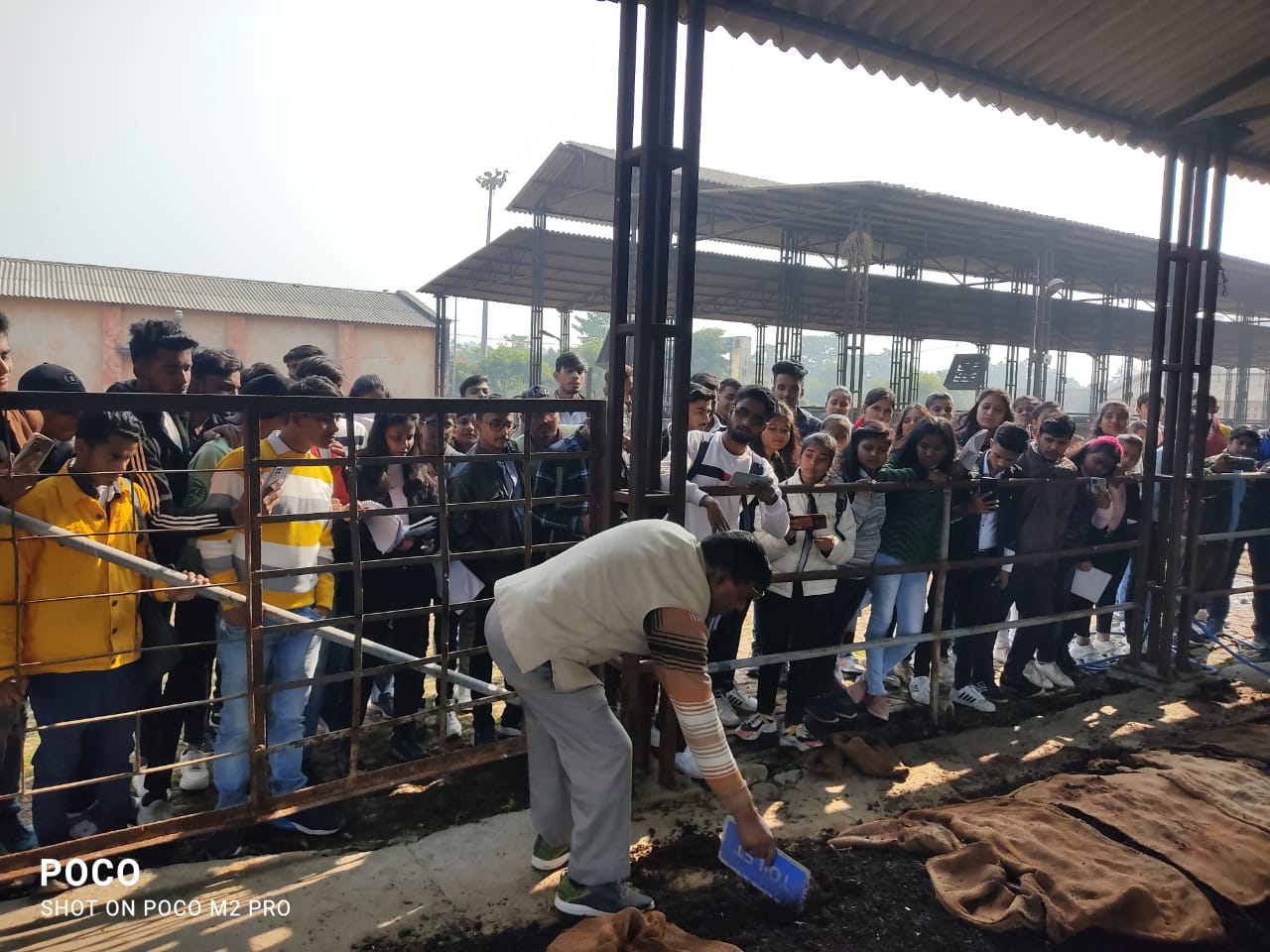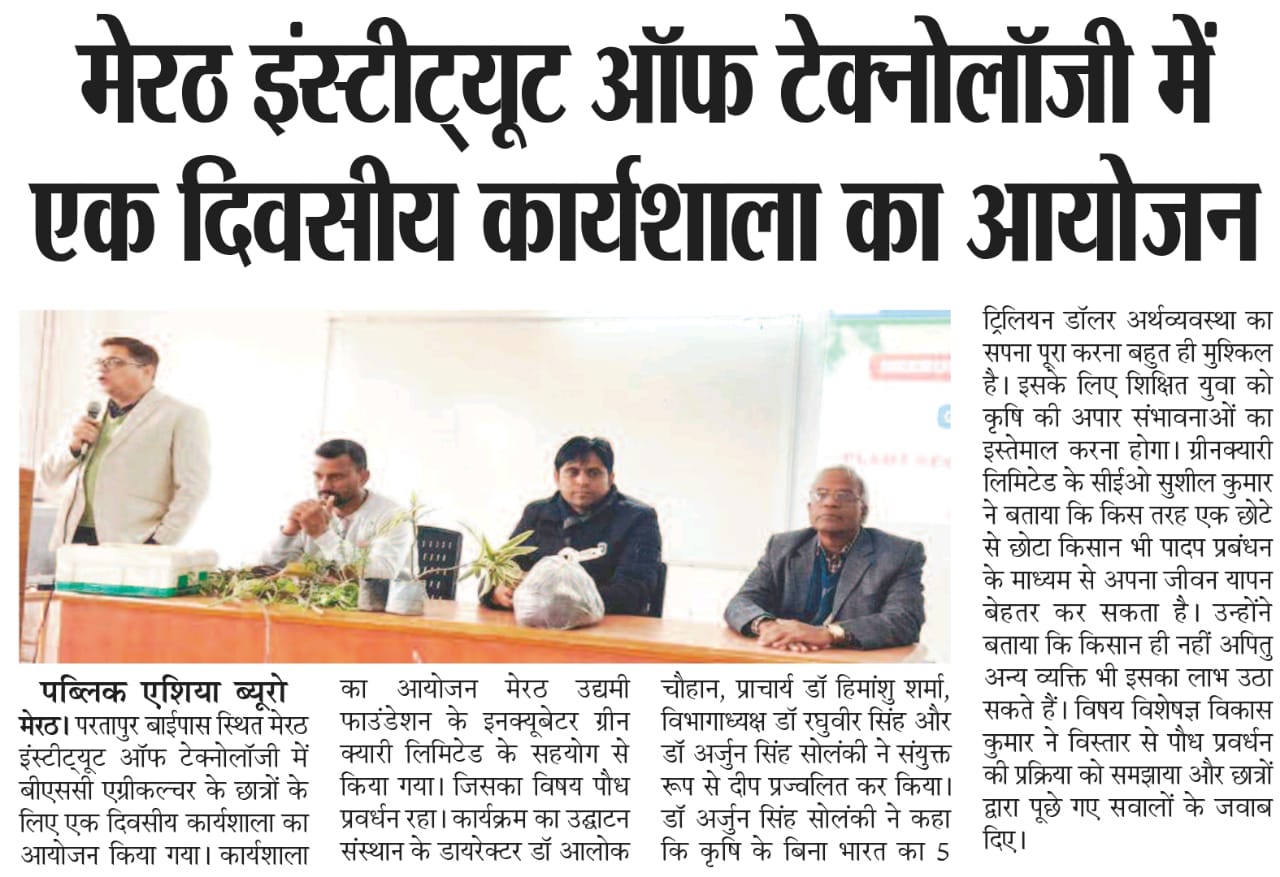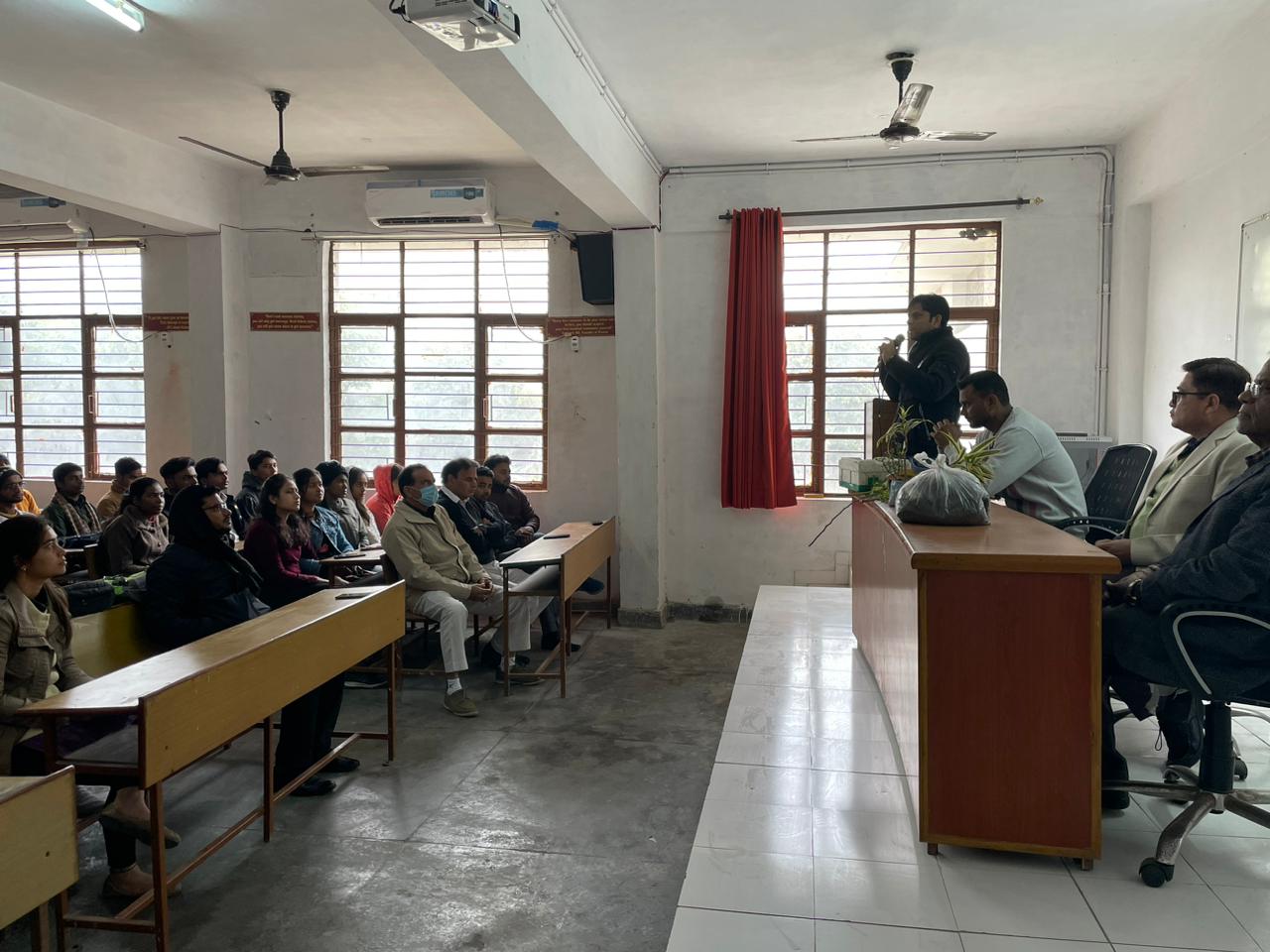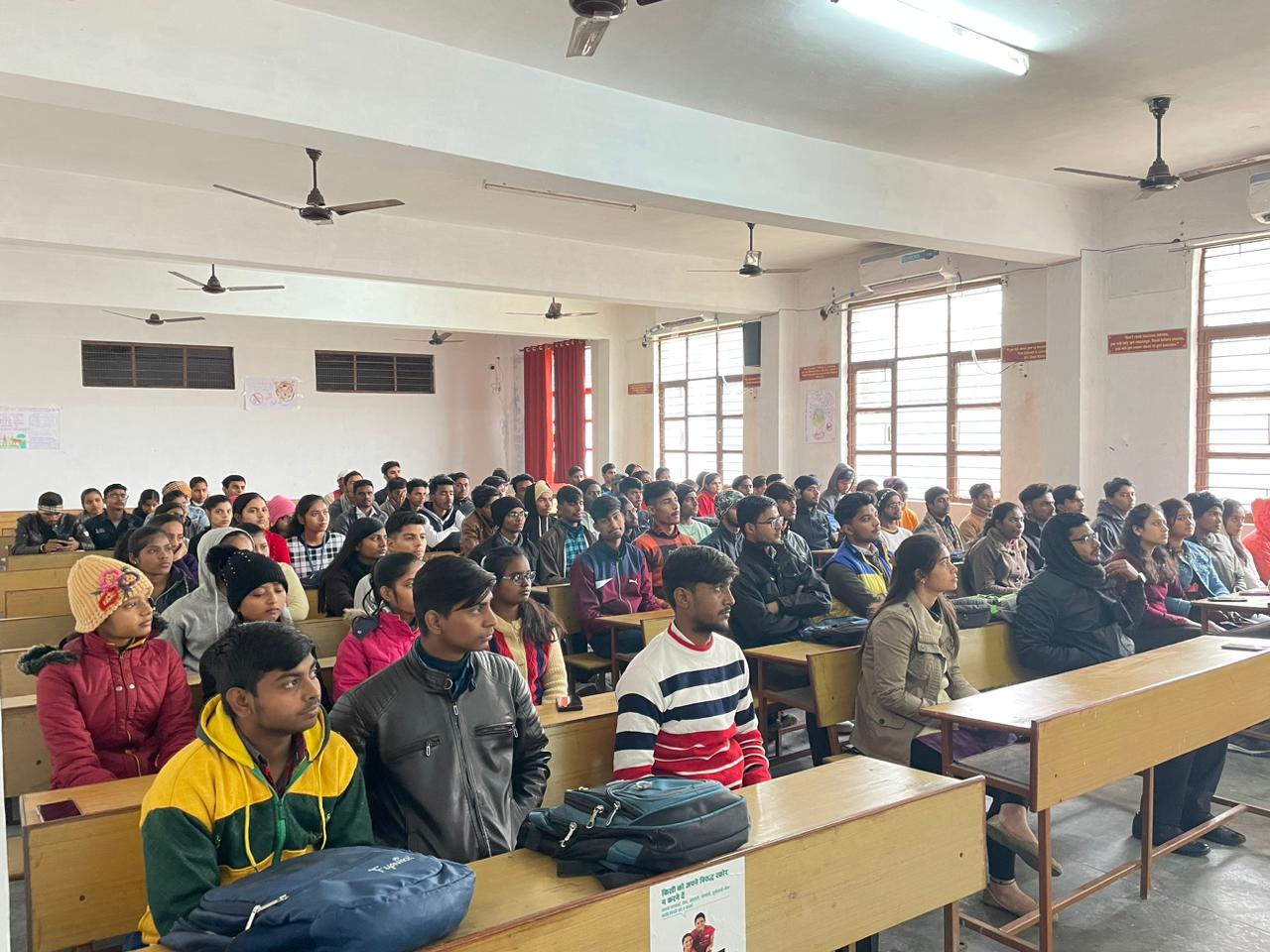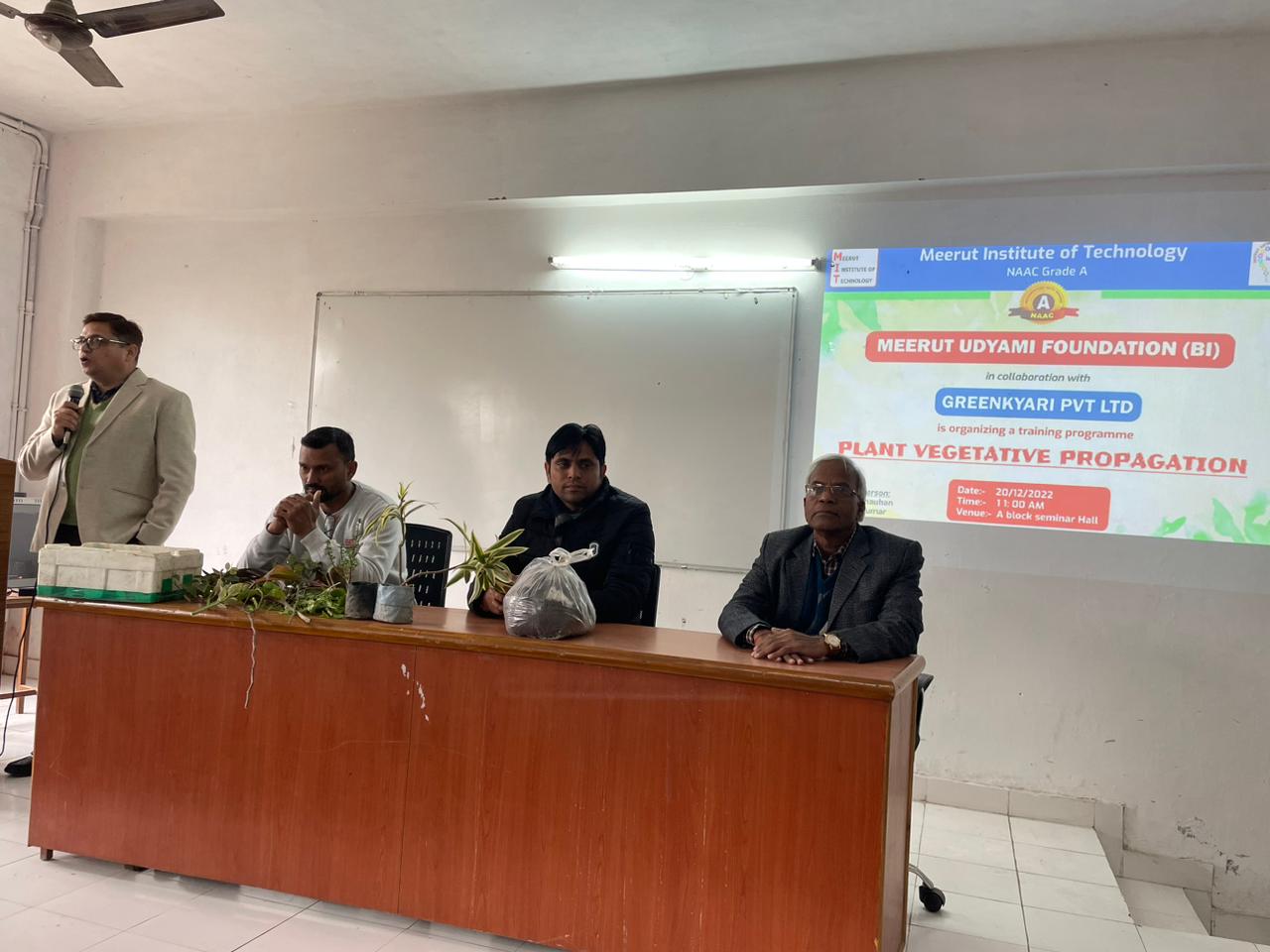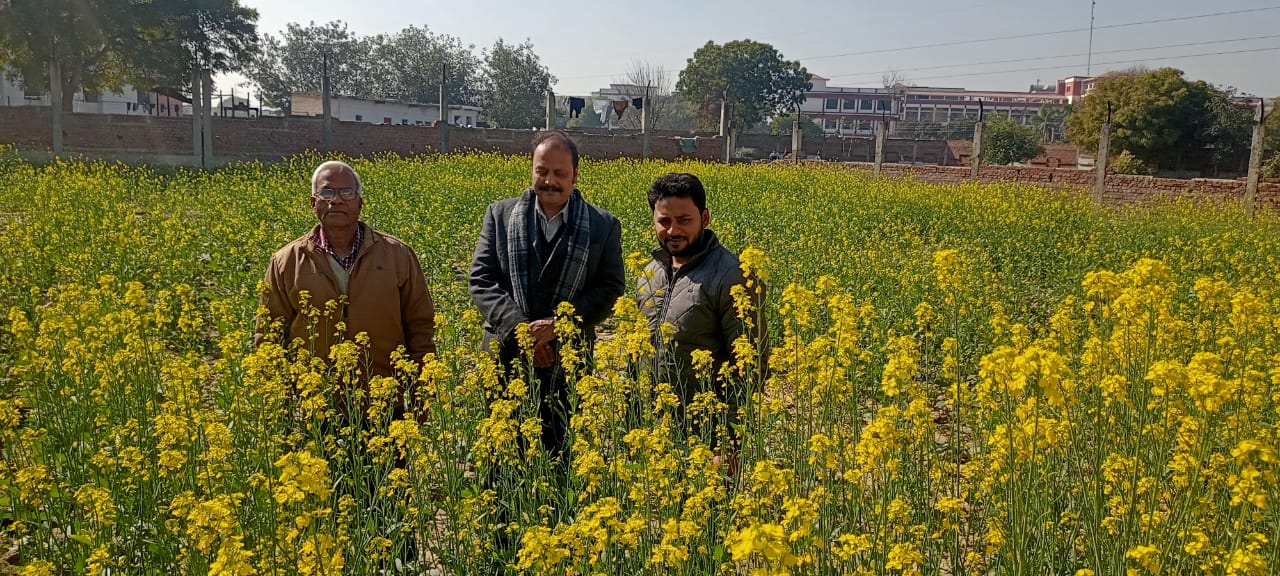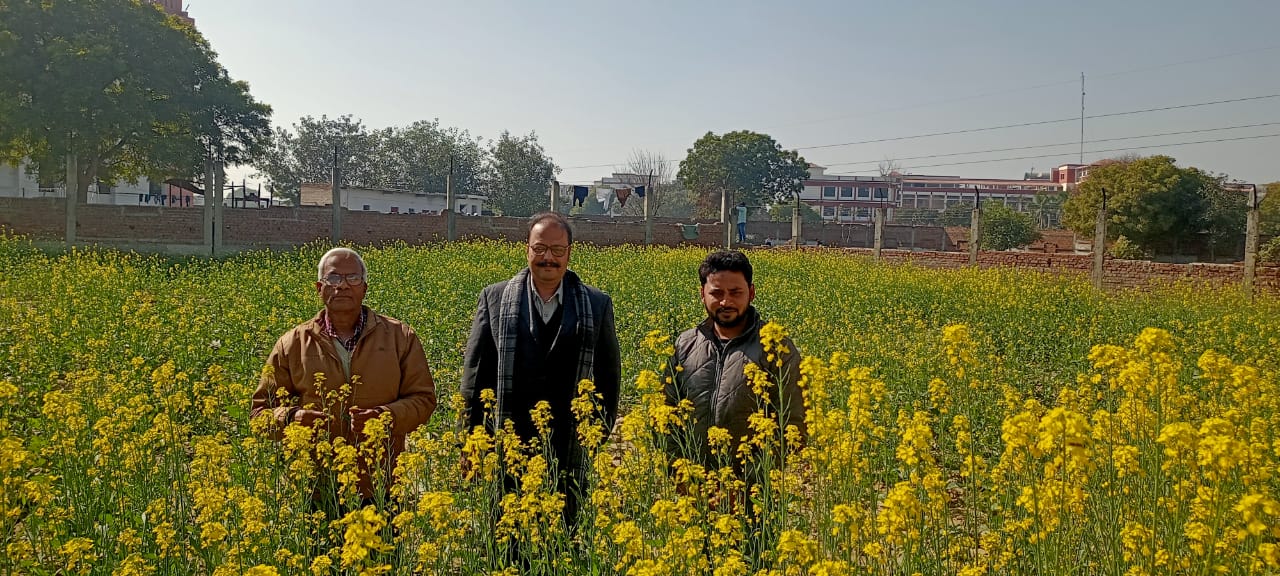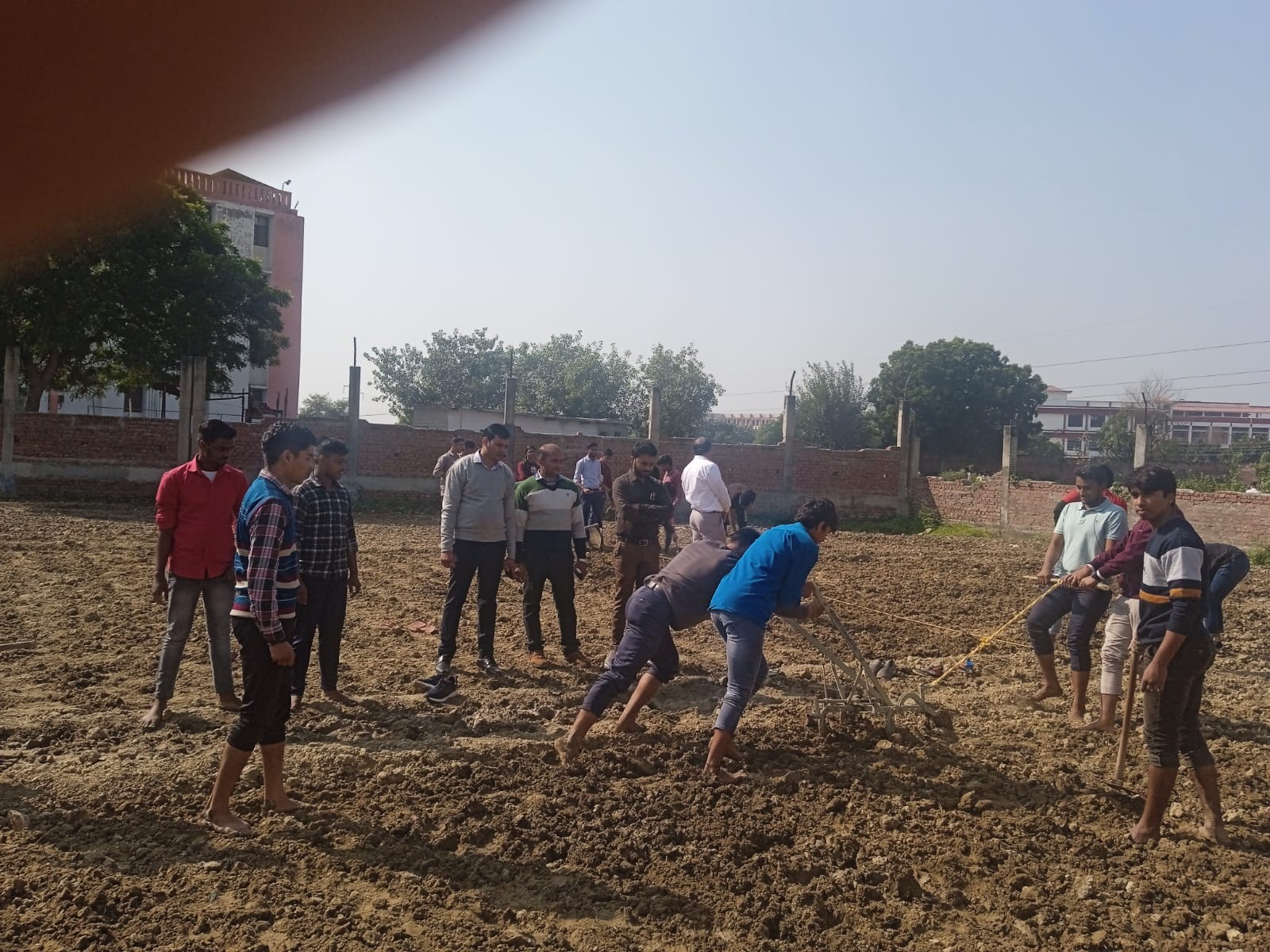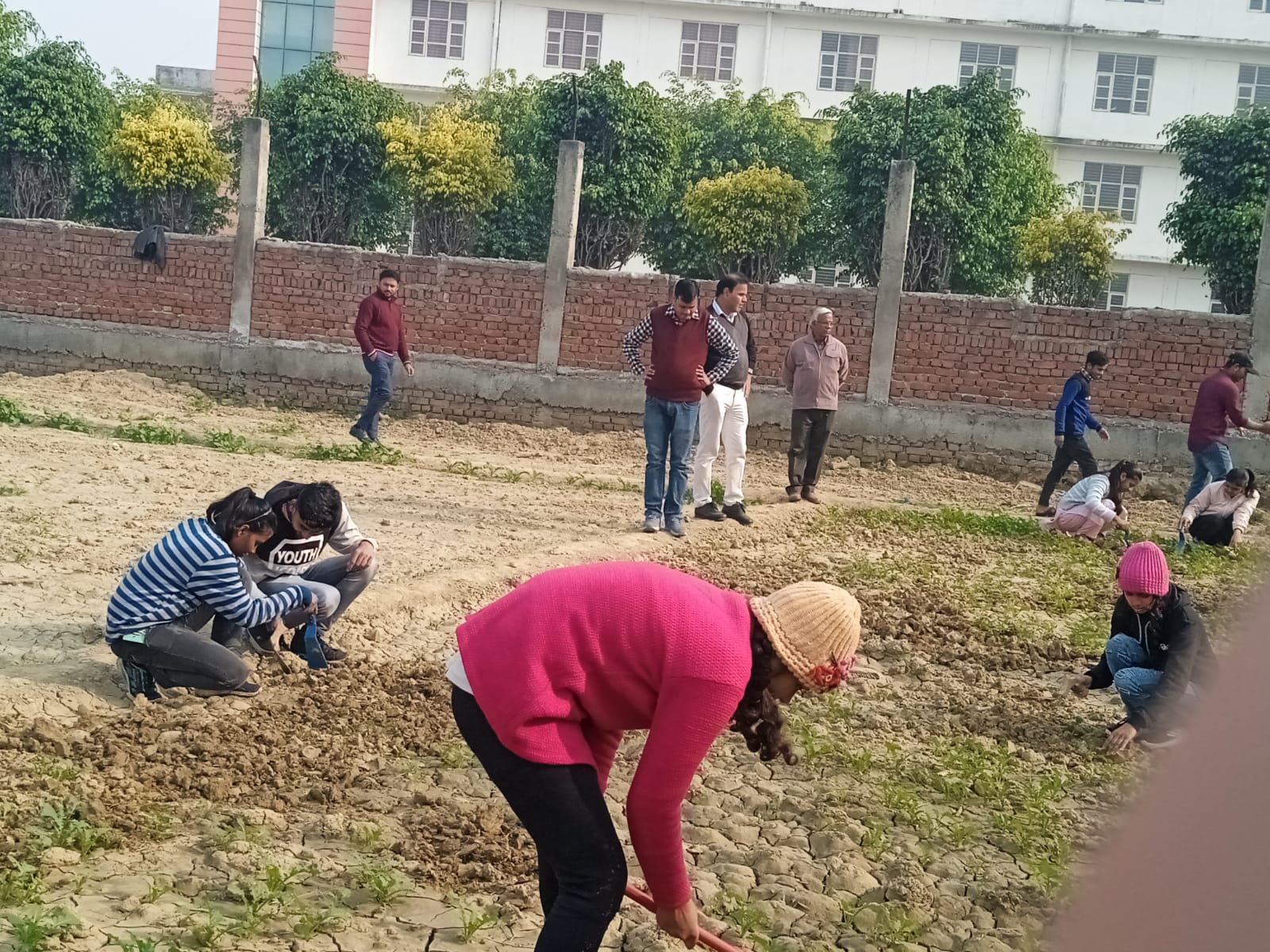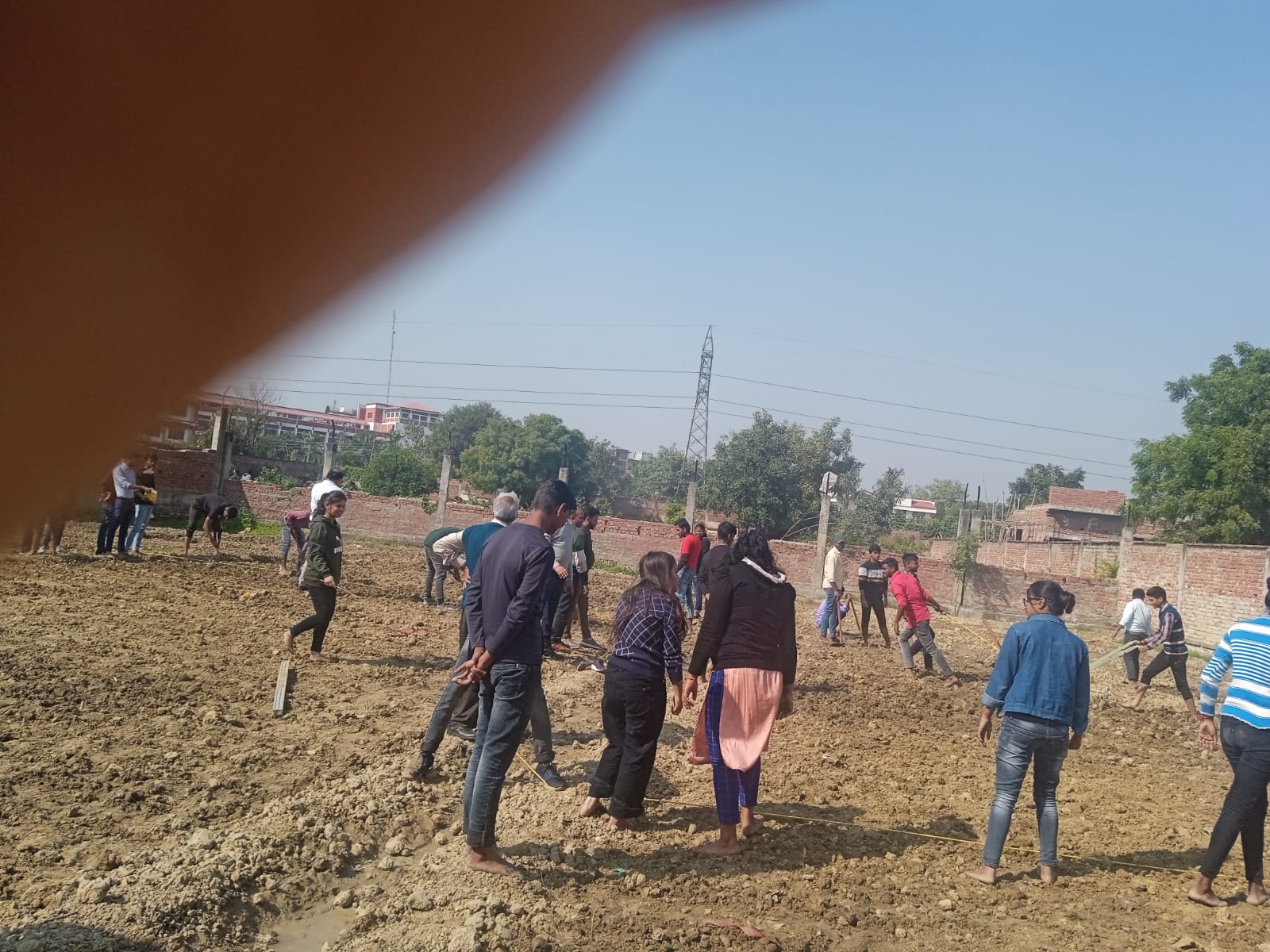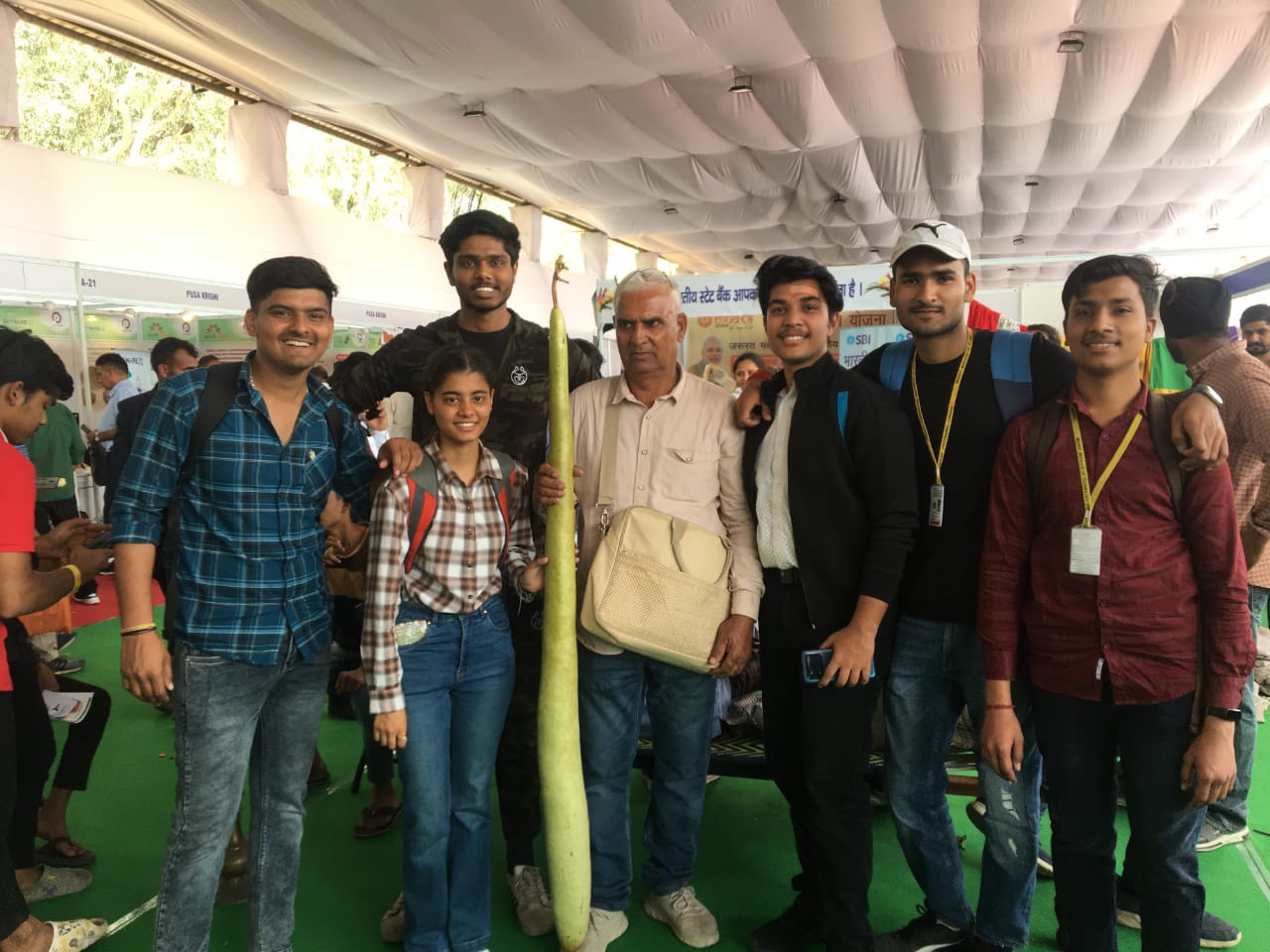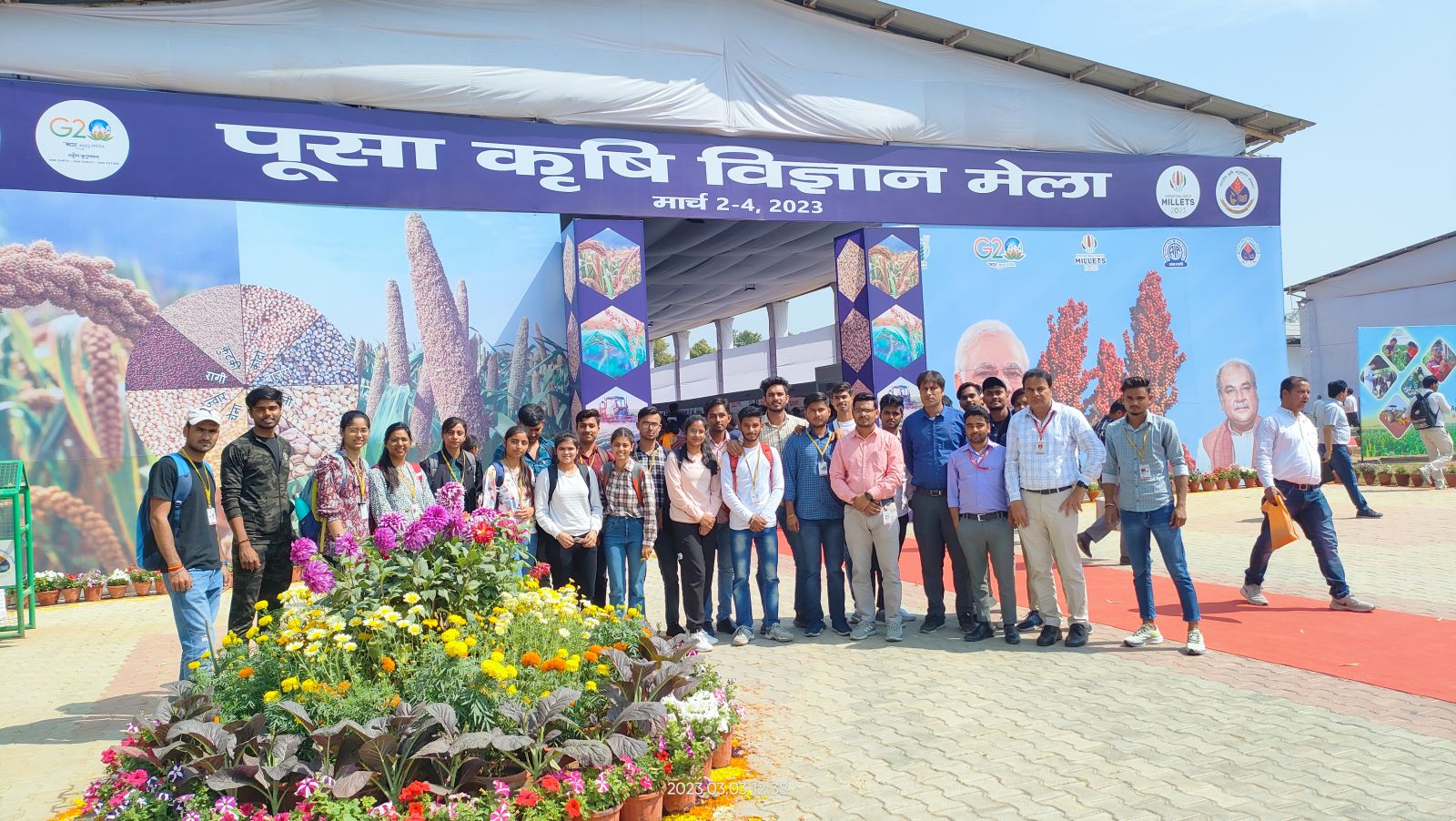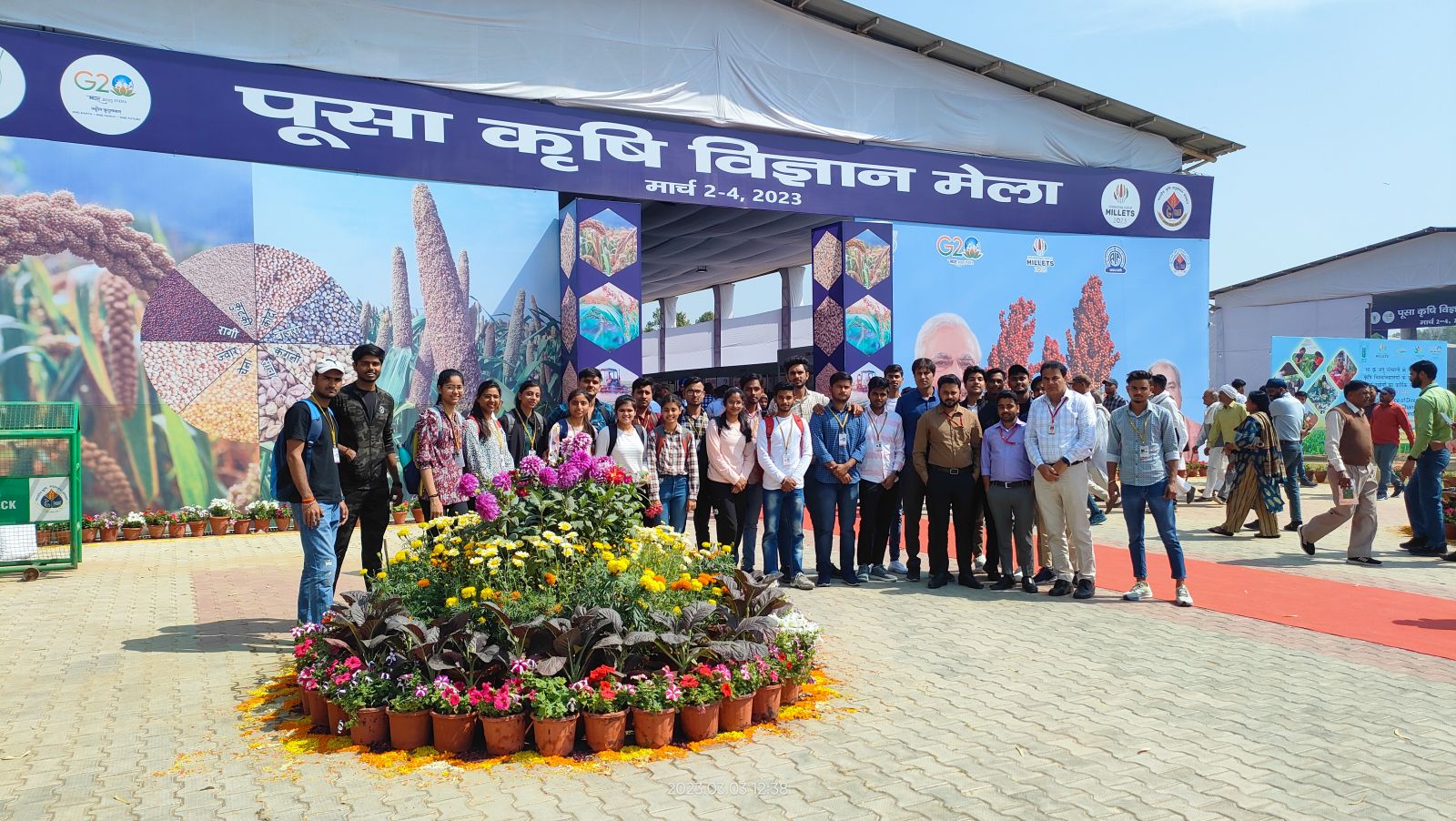|
Semester- 1 |
|
S.N. |
Name of the Subject |
Subject Code |
Course Outcomes |
|
1 |
Principals of Agronomy |
D-191 |
CO1 : To understand about Indian Agriculture and importance, present status, scope and future prospect.
CO2 : To understand the Cropping seasons of India, Soil formation and its properties.
CO3 : To understand the crops and crops seeds
CO4 : To apply the understanding of Agronomy for crops cultivation and management for the purpose of producing food for human, feed for animal and raw material for industries.
CO5 : To analyze the relation of Agronomy with other disciplines such as Botany, Soil Science, crop physiology, plant ecology, plant protection, Plant Genetics and Breeding, Agrometeorology etc.
CO6: To make students practically strong in the areas of field preparation,s owing and harvesting of crops, fertilizer and crooping pattern. |
|
2 |
Fundamentals of Soil Science |
D-192 |
CO1: To understand about soil forming rocks and minerals, their weathering and soil forming processes .
CO2: To understand about physical and chemical properties of soil and their effect on plant’s health.
CO3: To understand students about causes, effects and remedies to prevention and mitigation of soil pollution.
CO4: Student will able to evaluate physical and chemical properties of soil. |
|
3 |
Elements Of Genetics |
D-193 |
CO1:To understand about the historical development aspect of genetics.
CO2:To understand the concept of inheritance and cell division.
CO3:To understand the linkage and crossing over and its significance in plants.
CO4:To understand the causes of various genetic disorders proper. CO5: To know proper handling during laboratory work. |
|
4 |
Elementary Statistics and Applied Mathematics |
D-194 |
CO1: To understand of basic concepts of statistics and applied mathematics.
CO2: To compute various measures of central tendencies, dispersion , probability, sampling
techniques, differentiation and their implementation in solving the numerical problems.
CO3: To analyse the data using various statistical test like Z- Test, T-Test, F- Test, Chi- Square
Test.
CO4: To take appropriate decision by applying the concepts of analytics and experimental
design.
|
|
5 |
Agricultural Meteorology |
D-195 |
CO1: To understand roles of agrometeorology in agriculture and its relation to other areas of agriculture. CO2:To acquaint with recent developments in agrometeorology with historical development of climate change.
CO3: To understand the meteorological and hydrological factors in relation to agriculture.
CO4: To understand weather and climate are the factors determining the success or failure of agriculture.
CO5: To analyse agrometeorology studies the behavior of the weather elements that have direct relevance to agriculture and their effect on crop production.
|
|
6 |
Rural Sociology and Educational Psychology |
D-196 |
CO1 : To Understand and analyze social, economic and political aspects of rural society.
CO3 : To Understand the changes that are taking place in rural society.
CO4 : To Understand the psychological concepts and Rural leadership.
CO5 : To understand basic rural institution and their role.
CO2 : To be able to demonstrate nature, subject-matter and importance of studying Rural Sociology. |
|
7 |
Fundamental of Horticulture |
D-197 |
CO1 : To understand horticulture relates to the economy and environments, both currently and in the future.
CO2 :Students will understand basic principles, processes and plant propagation methods.
CO3 :Students will be able to understand plant vegetative structure
CO4 :Students will apply his understanding in plant propagations, harvest and management. |
|
8 |
Structural & Spoken English |
D-199 |
CO1:Student will able to understand the functional aspects of english grammar.
CO2:The course will acquaint students with the common english sentence structures, enable them to form new sentences and detect common errors.
CO3:Student will understand the different styles of reading and develpo their english comprehension.
CO4:Strudent will able to write application and report. It will develop written communication skills of the students.
CO5:To increase the vocabulary of students and develop their understanding english. |
|
9 |
Environmental Studies |
D-008 |
CO1: To understand the basics aspects associated with structure and function of ecological systems.
CO2 : To understand the importance of natural resources and the need of their conservation for a sustainable environment.
CO3 : To identify their roles, responsibilities as a citizen, consumers and environmental actors in a complex interconnected world.
CO4 : To analyze the impact of human and pollution on environment.
CO5 :Students will able to write and communicate effectively about environmental issues and problems |
|
Semester- 2 |
|
S.N. |
Name of the Subject |
Subject Code |
Course Outcomes |
|
1 |
Irrigation and water management |
D-291 |
CO1: To understand the importance of water in crop production.
CO2: To understand the irrigation scheduling, system and methods of irrigation.
CO3: To understand about the quantity and quality of irrigation water, WUE, factors affecting W.U.E. and agronomic techniques to boost W.U.E.
CO5: Student will apply their understanding in the elementary idea of drainage and its importance.
CO4: Student will able to analyze the water requirement of crops and factors affecting it. |
|
2 |
Fundamentals of extension education and rural development |
D-292 |
CO1:To understand of the rural development schemes.
CO2:To understand of the problems of rural development.
CO3:To understand different methods for transfer of agricultural technology.
CO4:To understand of aids for extension activities as projector, display board, field demonstrations.
CO5:To be able to create plan for developmental activities.
|
|
3 |
Elementary crop Physiology |
D-293 |
CO1: To understand the physiology of plants. CO2:To understand the plant cell and its function.
CO3:To understand the deficiency and disorder of Nutrients in plants. CO4:To understand the plant growth photosynthesis democracy etc. |
|
4 |
Introductory Entomology |
D-294 |
CO1:To understand the knowledge of Insects. O2:To understand about the insects morphology, anatomy, sense organs.
CO3:To understand general introduction of phylum Arthropoda, its various classes & their character with reference to class-Insecta.
CO4:To understand the pre development & post embryonic development. |
|
5 |
IntroductoryPlant Pathology |
D-295 |
CO1:To understand the knowledge of Plant Pathology.
CO2:To understand the reasons of plant pathogens.
CO3:To understand the pathogen fungi and classification.
CO4:To understand the pathogen bacteria and morphology, reproduction and role of causes the diseases.
CO5:To understand about virus and it nature |
|
6 |
Elementary plant bio chemistry and chemistry of plant products |
D-296 |
CO1: To acquaint understanding on different theories of formation coordination compounds.
CO2: To understand the role of cell organelles and their functions.
CO3: To understand the deficiency symptoms of biomolecules.
CO4: To understand the biomolecules in a given samples. |
|
7 |
Introduction to Agricultural & Natural Resource Economics and Farm management economics |
D-297 |
CO1:To understand the markets and their role.
CO2:To understand the market agents and controlled market
CO3: To understand the problems of marketing of Agriculture produce.
CO4: To gain fundamental understanding of demand and supply of a commodity.
CO5: To undertstand about importance of cooperative system and corporative Banks |
|
Semester- 3 |
|
S.N. |
Name of the Subject |
Subject Code |
Course Outcomes |
|
1 |
Cereals, Millets and Pulses Crop (Kharif crops) |
D-391 |
CO1: To understand about origin, geographical distribution, and economic importance of Kharif crops.
CO2: To understand about the Soil and climatic requirements, varieties, cultural practices and yield of Kharif crops.
CO3: To uderstand the constraints in production of oilseeds and pulses.
CO4: To understand the production technology of kharif cereals and millets to
fulfill the need of human consumption and milch cattle.
CO5: To analysis of comparative benefits of the different kharif crops. CO6:To impart practical knowledgeof operations from sowing to harvesting of kharif crops. |
|
2 |
Principals of Plant Breeding |
D-392 |
CO1: To understand the history and objectivity of plant breeding. CO2: To understand the mode of reproduction in crops.
CO3: To understand the emasculation and pollination in plants and its importance in crops in prevent.
CO4: To be able to analyze a selection experiment.
CO5: To Communicate background information and original ideas related to breeding a specific crop
CO5: To start a consultant company to guide & supply the better varieties to the farmers. |
|
3 |
Farm Structures, Power and Machinery |
D-393 |
CO1: To understand about the various sources of farm power and their uses.
CO2: To understand about working of IC Engines and their uses in modern equipments.
CO3: To understand about various parts of tractors and their mechanism.
CO4: To understand about the financial aspects of using farm power.
CO5: To understand about the various implements used in agriculture farm for various purposes. |
|
4 |
Environmental Science and Agro Ecology |
D-394 |
CO1. To understand the basics aspects associated with structure and function of ecological systems.
CO2. To understand how the organisms that compose an agro-ecosystem interact with each other and with their environment.
CO3. To make the students to apply their knowledge for efficient environmental decision-making, management and sustainable development.
CO4. Students will analyze the ecological problems occurring in agriculture and selecting viable solutions to solve problems.
CO5. Laboratory and field experience allowing students to gain specific practical skills. |
|
5 |
Agriculture Marketing, Export and Cooperation |
D-395 |
CO1. To gain understanding on agricultural marketing, challenges and prospects for improving agricultural marketing system
CO2 . To understand the Markets and Market Structure
CO3. Imparting understanding to marketing efficiency and agricultural prices.
CO4. To gain skills to analyze Marketing Functions, Market Information and Intelligence |
|
6 |
Vegetable Production |
D-396 |
CO1: Students will understand importance of vegetables in human nutrition improved and national economy. CO2:To gain understanding about quality requirement and production and techniques
CO3:To apply horticultural principles to the successful growth and production of horticultural plants. CO4: Student will apply the knowledge for solving field problems.
CO5: To analyze the Importance of crop physiology in horticulture.
CO6:Students will understand practical understanding on specialized production techniques of vegetables. |
|
7 |
Elementary Microbiology and Soil Microbiology |
D-397 |
CO1: Student will understand the basics of different types of microorganism.
CO2: Student will understand about micro-organisms and their general characteristics.
CO3: To be able to understand how to sterilization and disinfection.
CO4: Student will able to evaluate about the micro-organism present in soil rhizosphere. |
|
Semester- 4 |
|
S.N. |
Name of the Subject |
Subject Code |
Course Outcomes |
|
1 |
Rabi Crops Oil Seeds and commercials (Fields crops-II) |
D-491 |
CO1:To be able to understand the importance of Rabi crops.
CO2:To be able to write the origin and distribution of Rabi crop.
CO3: To understand the improved varieties and climatic requirements for Rabi crops.
CO4: To understand the improved agronomic practices for harvesting the good economical yield under different agro climatic conditions of U.P.
CO5: To be able to understand the processing of Rabi crop for values addition. |
|
2 |
Breeding of field crops |
D-492 |
CO1: To understand the origins and distribution of plants
CO2: To understand the systematic description and economics important of crop plants.
CO3: Student will able to develop consultant company to guide and supply the better varieties to the
farmers.
CO4: Student will able to create the insects and diseases resistant varieties for eco- friendly
management. |
|
3 |
Principals of Soil physics and conservation |
D-493 |
CO1: To be able to understand the physical properties of soil and their determination.
CO2: To understand the importance of soil conservation in agriculture.
CO3:To be able to understand history of Soil conservation in India.
CO4: To understand soil erosion, definition type’s mechanics and causes of erosion, factors affecting soil erosion. |
|
4 |
Livestock production and management and including poultry |
D-494 |
CO1: To understand the importance and contribution of livestock in the state and national economy.
CO2: Students will be able to understand the mechanisms and role of reproductive physiology in livestock production.
CO3: Students will understand the application of modern animal production technologies and management practices impact the production facilities, the communities and the world.
CO4: To have minimum basic understanding of different disease encountered in the farm animal and poultry and their preventive and control measures.
CO5: Students will able to apply concepts of breeding, physiology, nutrition, herd-health, economics and management into practical and profitable animal production programs. CO6: To make students practically stronger to undertake entrepreneurship in the livestock and poultry sector. |
|
5 |
Economic Entomology |
D-495 |
CO1:To gain understanding of Economic Entomology
CO2: To understand the life Cycle of different pests (ex. Pest of Paddy, Pests of Jawer Maize Pest of sugarcane, Pest of cotton, Pest of pulses, fruit crop, vegetable& stored grain)
CO3:To understand about nature of damage.
CO4:To understand about Control strategies.
CO5:To understand about scientific names of different pests. |
|
6 |
Fruit Production |
D-496 |
CO1:To understand importance of different fruit crops and plantation crops.
CO2:To understand canopy architecture for higher productivity in mango and grapes.
CO3: Students will understand package of practices for the major crops like mango, banana,
guava, lemon, pineapple, coffee, coconut and rubber.
CO4: To understand the concept of high density planting in different fruit crops. |
|
Semester-5 |
|
S.N. |
Name of the Subject |
Subject Code |
Course Outcomes |
|
1 |
Introduction to Plant Biotechnology |
D-591 |
CO1:To understand the biotechnological tools used in Agriculture biotechnology lab.
CO2:To understand the application of biotechnology/Genetics engineering in crop improvement.
CO3:To understand the tissue culture media.
CO4:To understand the plant tissue culture and micro propagation. CO5:Apply learned techniques in new or similar situations |
|
2 |
Milk and Milk Processing and human Nutrition |
D-592 |
CO1:To be able to write the definition and chemical composition of milk and colostrums.
CO2: To be able to understand the physical properties of milk and colostrums.
CO4: To be able to understand the factors affecting the quality and quantity of milk.
CO3: To be able to analyze the difference in the milk of cow and buffalo and colostrums.
CO5: To be able to write the name of microorganism of milk and their functions. |
|
3 |
Preservation of Fruit and Vegetable Post Harvest Management of Fruits and Vegetables |
D-593 |
CO1: To understand the post harvest technology of horticultural crops.
CO2: To understand the value addition of horticulture crops.
CO3: To understand the work space, tool and equipment design for PHT and value addition.
CO4: To understand the various certification and accreditation i.e. FPO, ISO and other leveling. CO5: To understand post harvest loss reduction through processing of fruits and vegetables.: |
|
4 |
Crop Pests and Integrated Pest Management |
D-594 |
CO1: To gain general understanding of crop Pests.
CO2:To understand about Integrated Pest Management.
CO3:To understand Insect Vectors transmitting plant diseases.
CO4: To gain understanding of Insect Control Methods.
CO5:To understand about Plant Protection equipments |
|
5 |
Weed Management |
D-595 |
CO1: To understand why to undertake environmental weed control.
CO2: Students will able to understand different approaches of weed management.
CO3: Students will apply the understanding for planning of weed management and processes.
CO4: Students will able to evaluate about harmful and beneficial effects of weeds in Agriculture. CO5: Trained to workout collection and preservation of weeds. |
|
6 |
Crop Diseases and their Management |
D-596 |
CO1: The course will acquaint students with the general understanding of Plant diseases.
CO2: To understand how to control the disease and management of the diseases of crops.
CO3: Student will able to apply their understanding in identifying of disease symptoms, pathogens
CO4: To be able to understand the disease and about plant quarantine. |
|
7 |
Soil Fertility, Fertilizers and Integrated Nutrient Management |
D-597 |
CO1: To gain understanding of different manure and fertilizers used in different crops according to soil
condition.
CO2: To understand essentiality of plant nutrients and mechanism of nutrient transport to plant.
CO3: Students will evaluate the deficiency symptoms of plant nutrients.
CO4: To be able to establish soil testing laboratory in future as a entrepreneur. |
|
Semester- 6 |
|
S.N. |
Name of the Subject |
Subject Code |
Course Outcomes |
|
1 |
Principles of Seed Technology |
D-691 |
CO1: To provide students with the basic knowledge of seed formation, development, and morphology, seed chemical composition. CO2: To understand the storage of pure variety seed and to avoid the availability crises of pure variety seed due to adverse environmental conditions. CO3:To understand production of hybrid seed of different crops to increase the farm income. CO4: Provide students with the methodology of conducting and applying the industrial tests for monitoring seed quality. CO5: Students will acquire skills & handling operations of different equipment's in seed science laboratory. |
|
2 |
Dairy products technology |
D-692 |
CO1: Students will understand about traditional systems of cattle and concepts of farming. CO2: To understand about cream separation, pasteurization , homogenization of milk chemistry and microbiology of milk. CO3: To understand about general classification, characteristics, scope of microbes in dairy industry. CO4: To understand about mechanism of different dairy equipments. |
|
3 |
Post-Harvest Technology |
D-693 |
CO1: To understand the importance of pre-harvest physiology for fruit and vegetables on the long term storage of horticultural crops. CO2: To learn about the importance of atmospheric composition on the eating quality and shelf life of horticultural crops. CO3: To evaluate the damage caused by post-harvest pest and diseases under different storage regimes. CO4: To Contrast the design of controlled atmosphere stores and modified atmosphere packaging. CO5: To Determine various properties & parameters of Agriculture Produce.
|
|
4 |
Farming System & Sustainable Agriculture Course Outcomes |
D-694 |
CO1. The student will be able to understand the major aspects of agricultural practices and traditions through time and throughout the world. CO2. To understand in general the relationships among culture, economics, politics, science, and agricultural development. CO3. To understand of the cross-cultural interactions and exchange that linked the world’s people and facilitated agricultural development is also expected. CO4. To understand the attempts to minimize agricultural pollution and sustain food production adequate for the world's population. CO5. The student will analyze the refereed-journal articles, texts which represent the perspectives of different societies and agricultural traditions. |
|
5 |
Agricultural Finance, Business |
D-695 |
CO1: To understand the macroeconomics aspects of the economy as they affect the agricultural sector. CO2: TO explain the broad feature of Indian financial institutions with instruments to control credit in the country.
CO3: To Understand the conditions of financial markets and its impact in the economy.
CO4: To be able to apply economics principles to understand the conduct and performance of the agricultural industry.
CO5: To be able to explain the functions, objectives and limitations of commercial bank and other financial institution. |
|
6 |
Communication diffusion of agriculture innovation |
D-696 |
CO1: To understand the communication process and agriculture innovation. CO2: To understand the diffusion of agriculture innovation. CO3: To understand the development of agriculture research of agriculture innovation. CO4: To understand the management and demonstration for agriculture innovation. |
|
7 |
Mushroom cultivation |
D-697 |
CO1: To understand about different edible mushrooms and basic aspects of Mushroom cultivation. CO2:To be able to understand about the precautionary measures to be followed in mushroom cultivation. CO3: Student will able to gain knowledge to overcome contaminants, pest and diseases problems. CO4: To be able to get expertise in post harvest technology. CO5: Trained in spawn and mushroom cultivation especially indigenous to latest technology. CO6: Trained to workout cost analysis of mushroom unit and prepare projects to funding agencies. |
|
8 |
Ornamental of horticulture |
D-698 |
CO1: To be able to use botanical nomenclature to select plants for use in annual displays. CO2: The student will gain skill in manual drawing and execution of garden CO3: The students will able to create the garden of their own with all the elements of garden and principles. |
|
Semester- 7 |
|
S.N. |
Name of the Subject |
Subject Code |
Course Outcomes |
|
1 |
Rainfed Agriculture & Watershed Management |
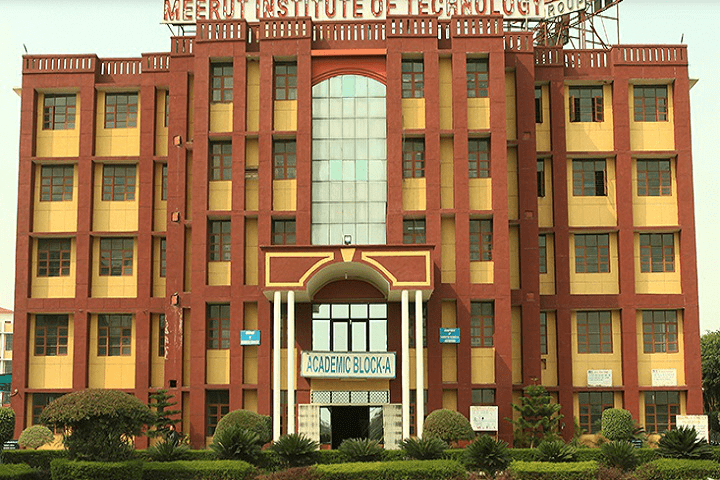

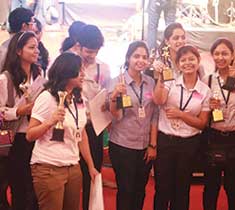
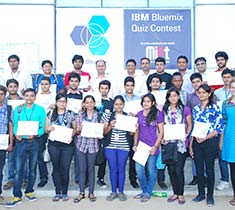



.png)



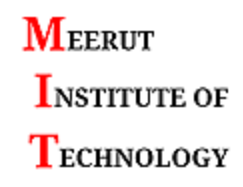
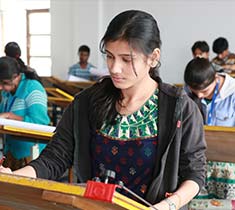


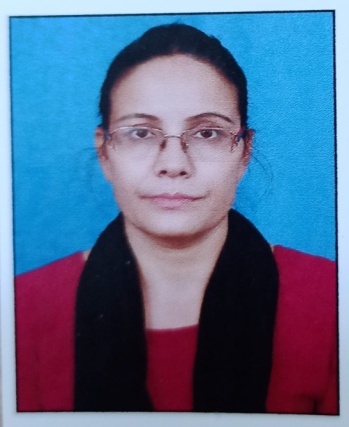




























.jpeg)

